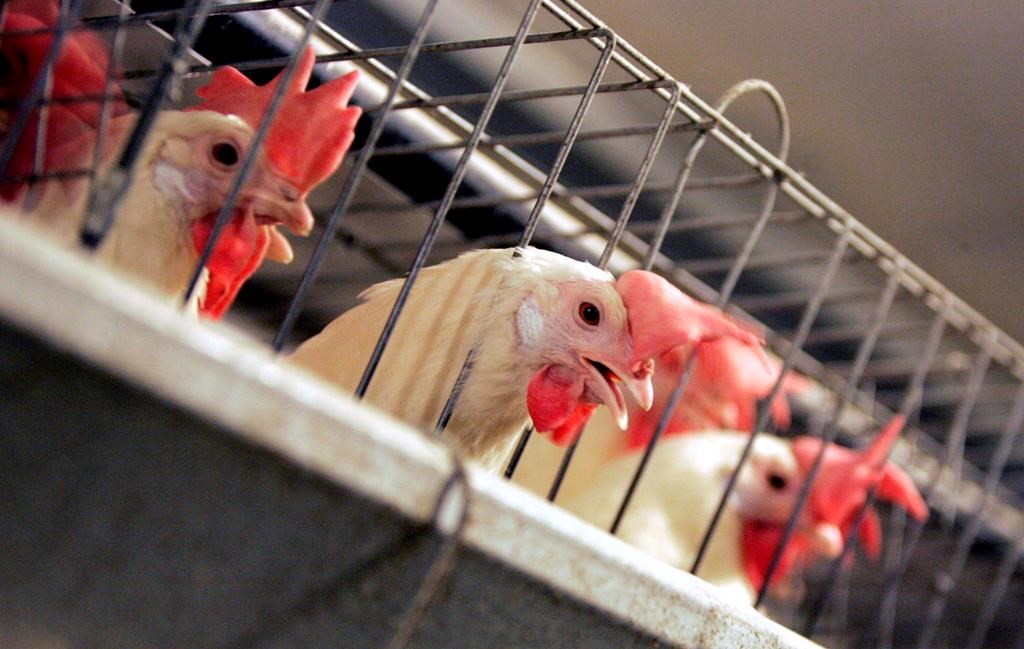A Winnipeg lab worker is now in 14 days of self-isolation after mistakenly being in contact with chickens that had been exposed to the new coronavirus that causes COVID-19.

The Canadian Food Inspection Agency says on the morning of March 28, an employee, “well-trained in all aspects of animal care procedures” entered a large animal cubicle, mistakenly believing it “housed non-infected chickens.”
The staff member was wearing enough personal protective clothing for a room with non-infected animals, but not enough for infected animals, they said.
“Therefore, the personal protective equipment that was worn by the employee at the time was not sufficient for the room at that time. All prescribed room signage was in place,” said a statement from the CFIA.
The chickens in the room had been inoculated with the coronavirus causing COVID-19, 11 days prior.
“The purpose of the study being undertaken was to determine whether chickens could become infected with the coronavirus causing COVID-19. Samples taken from the chickens on the day of the potential exposure tested negative, indicating that the risk of potential exposure was very low.”
The CFIA says out of an abundance of caution, the employee is now at home observing a 14-day self-isolation period and will self-monitor for symptoms.
As an additional precaution, the employee will undergo COVID-19 testing later this week.

Questions about COVID-19? Here are some things you need to know:
Health officials caution against all international travel. Returning travellers are legally obligated to self-isolate for 14 days, beginning March 26, in case they develop symptoms and to prevent spreading the virus to others. Some provinces and territories have also implemented additional recommendations or enforcement measures to ensure those returning to the area self-isolate.
Symptoms can include fever, cough and difficulty breathing — very similar to a cold or flu. Some people can develop a more severe illness. People most at risk of this include older adults and people with severe chronic medical conditions like heart, lung or kidney disease. If you develop symptoms, contact public health authorities.
To prevent the virus from spreading, experts recommend frequent handwashing and coughing into your sleeve. They also recommend minimizing contact with others, staying home as much as possible and maintaining a distance of two metres from other people if you go out.
For full COVID-19 coverage from Global News, click here.
- Capital gains changes are ‘really fair,’ Freeland says, as doctors cry foul
- Ontario doctors offer solutions to help address shortage of family physicians
- ‘Dangerous message’: Experts slam anti-sunscreen claims circulating online
- ‘Trying not to die’: Tourism operators loaded with debt despite rising demand





Comments